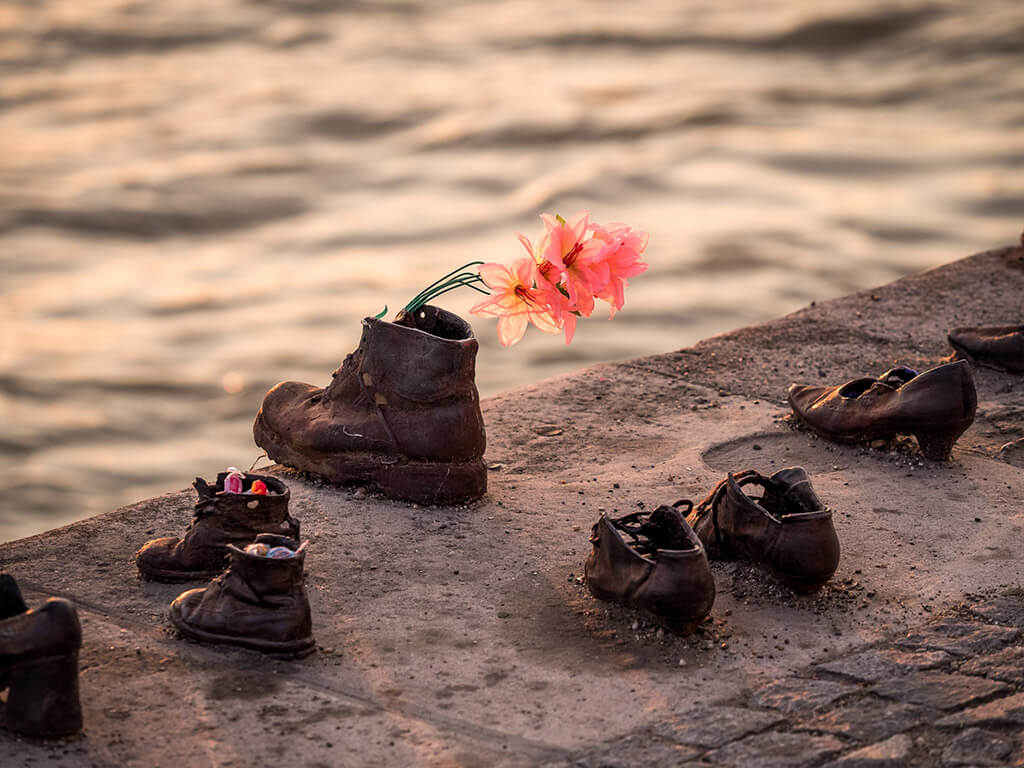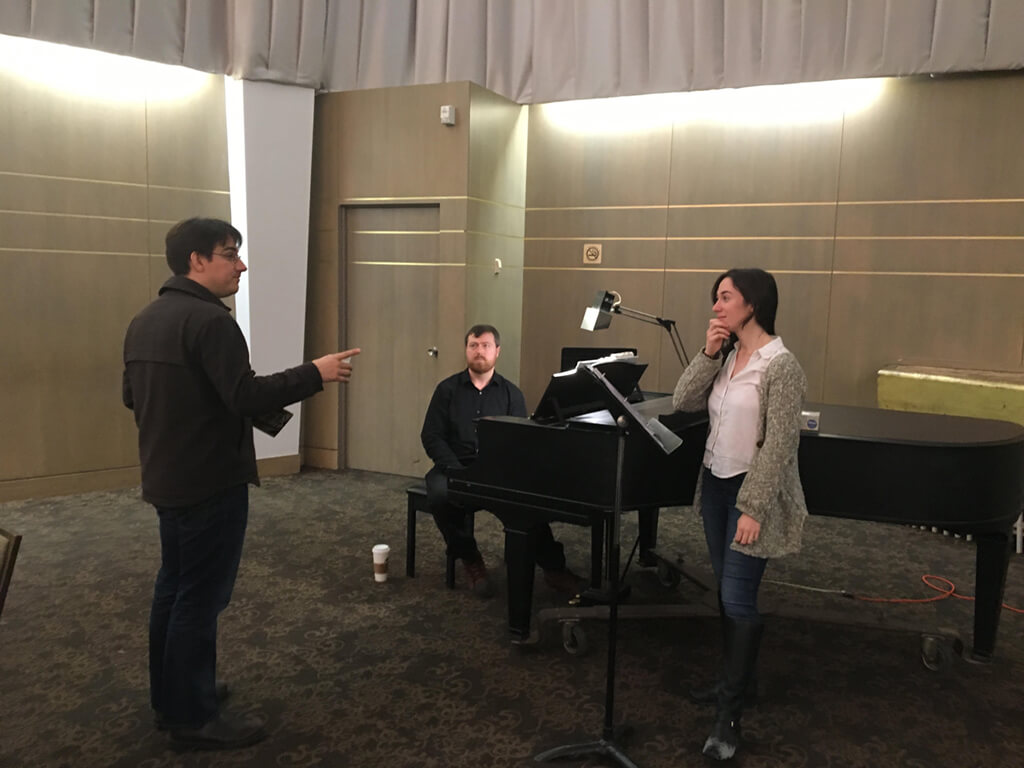
With their first production and the Canadian premiere of Jake Heggie’s one-act operas Another Sunrise and Farewell Auschwitz, the Electric Bond Ensemble tells more than just another Holocaust story. From February 10 to 11, the Beth Tzedec Congregation welcomes the performance of what the performers describe as a Holocaust cabaret.
Telling More Than Another Holocaust Story
Sara Schabas explained that she created the Ensemble to tell untold stories through opera. Heggie’s operas centring around Krystyna Zywulska, a Polish dissident, writer, and Auschwitz-survivor provided the perfect opportunity. Through Heggie’s eclectic style, the works bring to life Zywulska’s memories from the camps by setting to music the poetry she wrote to stay alive.
Produced by the Beth Tzedec Congregation, the Director of Community Building and Spiritual Engagement Yacov Fruchter expressed his excitement about the project because it tells Jewish history in a unique and engaging way. The story is conveyed through song as if the characters cannot express it through speech. The controversial subject matter of this project is brought into greater focus when Fruchter described the transformation of the synagogue’s Herman Hall into the room next to the crematorium.
Moving Beyond the Stereotype of a Victim or Survivor
Having worked with Heggie herself, Schabas was attracted to the piece because it moved beyond seeing these survivors and victims as one-dimensional stereotypes. Despite this added complexity, because she hasn’t experienced these horrors herself, Schabas admitted that she felt like an imposter. Although she researched the part by reading primary documentation including Zywulska’s autobiography I Survived Auschwitz, it is still hard to portray something on stage that was never lived, but even more difficult because it has been by some of Toronto’s residents. The intimidation to do such monumental subject matter effectively was also felt among the rest of the cast too.
Directing opera for the first time, Aaron Willis’ approached this feeling by taking an unconventional approach to directing opera. Before rehearsing the music, Willis worked with the performers to dissect and understand the text, literally by speaking it. He compares directing music to working on one of William Shakespeare’s plays. In the same way, he said that one could either choose to respect its rules or break them to create meaning, one can also do this with music. I had the chance to see this text work with mezzo-soprano Georgia Burashko and music director Michael Shannon. The three of them worked together as a team to find motivation in this dense music. It was intriguing to see both the director and the musical director work together so cohesively to find expression from a different means in the same source which, as Shannon noted, is not often seen in opera.

Remembering the Holocaust through the Unconventional
The non-standard approaches to this piece do not end with the music. Already set in the unconventional space of a synagogue, the costume and set designer Jennifer Goodman creates a sense of intimacy and immediacy by adding a thrust from the stage into the audience. As a result, this presentation that according to Fruchter is not for kids, becomes more connected with the audience. To my surprise in rehearsal, there are moments where the singers run into the audience thereby blurring the divide between history on the stage and the contemporary audience.
Through a careful reading of the text and a completely original set, Willis and Goodman create a theatrical container to connect these two separate pieces by overlaying them with characters that don’t appear in the other. Although one might argue that this changes Heggie’s intent for these pieces, as Fruchter noted, like the Jewish holiday Purim they celebrate turning things upside down and defying expectations.
Survivors as Heroes or Simply Humans?
This can be seen explicitly in Heggie’s music. Like the prisoners in the camps, he sets to music Zywulska’s poems to well-known pieces by Frédéric Chopin, Johann Strauss, and Kurt Weil. In doing so, Heggie problematizes –– or turns upside down –– this music by making it political. To reiterate what I said at the beginning of this preview, by creating a Holocaust cabaret Heggie makes something beautiful to listen to with more disturbing visual undertones. These pieces ask us to question how we previously understood Holocaust survivors like Zywulska, as a Hero or simply human.
The Electric Bond Ensemble’s double bill of Jake Heggie’s Another Sunrise and Farewell Auschwitz will be performed on February 10 at 8 pm and 11 at 2 pm at the Beth Tzedec Congregation. For more information about tickets see here.
LUDWIG VAN TORONTO
Want more updates on Toronto-centric classical music news and reviews before anyone else finds out? Follow us on Facebook or Twitter for all the latest.
![]()



